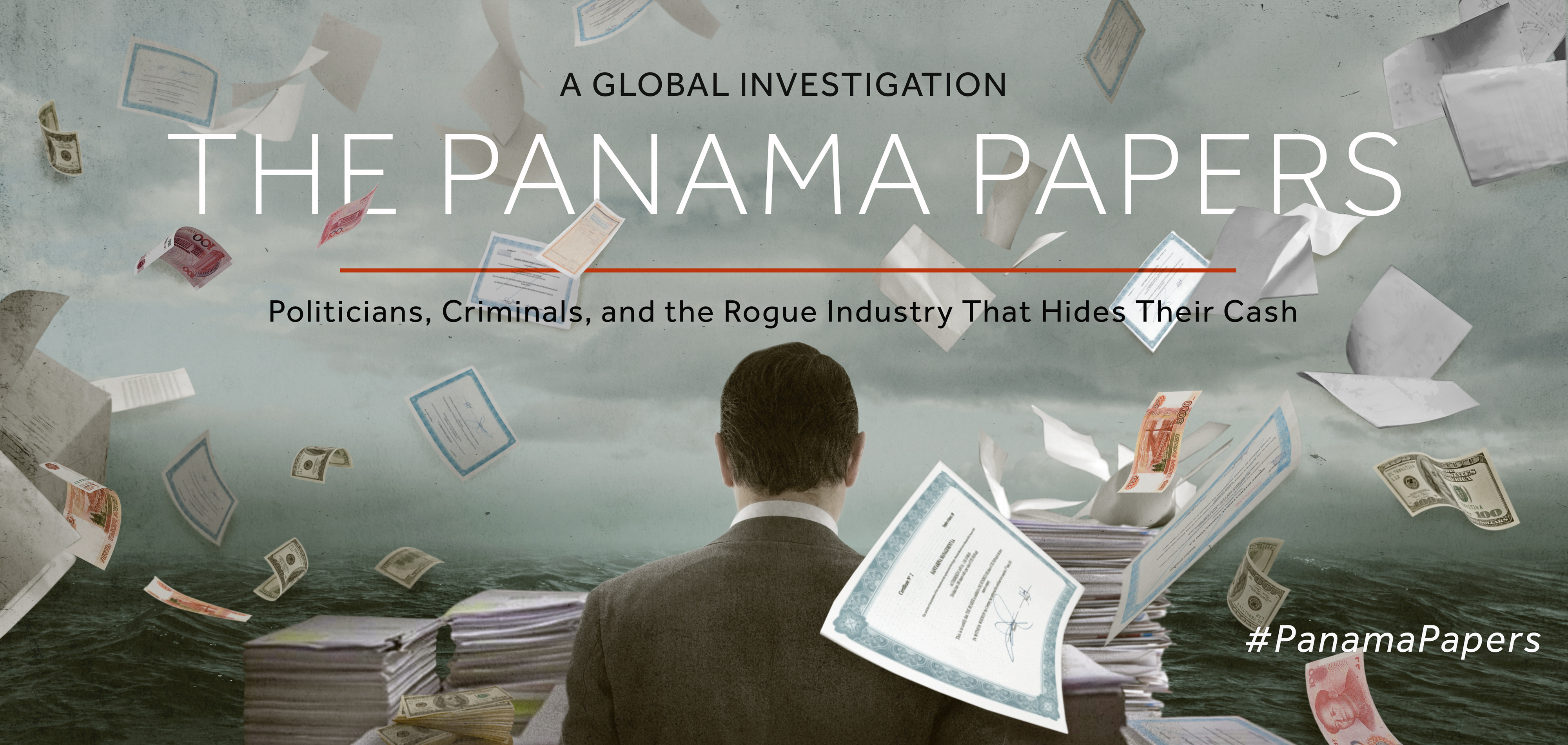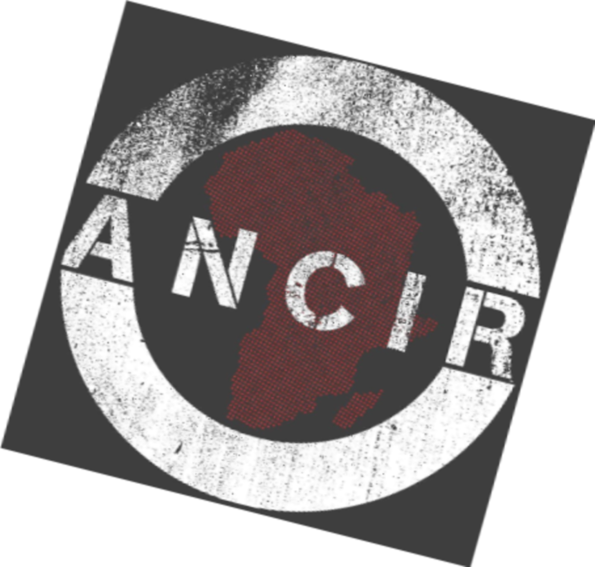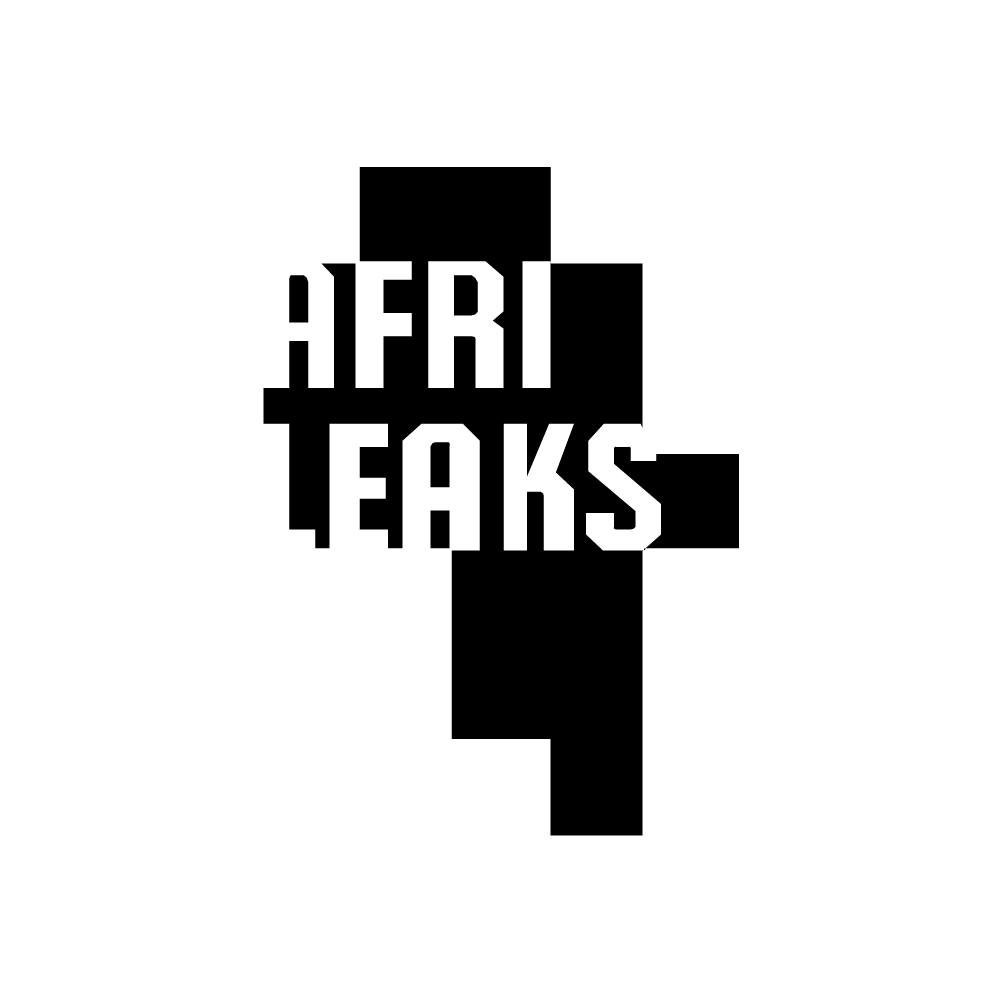
The Panama Papers: About this project
The Panama Papers is an unprecedented investigation that reveals the offshore links of some of the globe’s most prominent figures.
The International Consortium of Investigative Journalists (ICIJ), together with the German newspaper Suddeutsche Zeitung and more than 100 other media partners, including the African Network of Centers for Investigative Reporting (ANCIR), spent a year sifting through 11.5 million leaked files to expose the offshore holdings of world political leaders, links to global scandals, and details of the hidden financial dealings of fraudsters, drug traffickers, billionaires, celebrities, sports stars and more.
The trove of documents is likely the biggest leak of inside information in history. It includes nearly 40 years of data from a little-known but powerful law firm based in Panama. That firm, Mossack Fonseca, has offices in more than 35 locations around the globe, and is one of the world’s top creators of shell companies, the corporate structures that can be used to hide ownership of assets.
The data includes emails, financial spreadsheets, passports and corporate records revealing the secret owners of bank accounts and companies in 21 offshore jurisdictions, including Nevada, Hong Kong and the British Virgin Islands.
ICIJ’s data and research unit indexed, organized and analyzed the 2.6 terabytes of data that make up the leak, using collaborative platforms to communicate and share documents with journalists working in 25 languages in nearly 80 countries.
The secret files:
- Include 11.5 million records, dating back nearly 40 years – making it the largest leak in offshore history.
- Contain details on more than 214,000 offshore entities connected to people in more than 200 countries and territories.
- Show company owners in billionaires, sports stars, drug smugglers and fraudsters.
- Reveal the offshore holdings of 140 politicians and public officials around the world – including 12 current and former world leaders. Among them: the prime ministers of Iceland and Pakistan, the president of Ukraine, and the king of Saudi Arabia.
- Document some $2 billion in transactions secretly shuffled through banks and shadow companies by associates of Russian President Vladimir Putin.
- Include the names of at least 33 people and companies blacklisted by the U.S. authorities for doing business with drug traffickers, terror groups and/or rogue nations like North Korea and Iran.
- Show how major banks have driven the creation of hard-to-trace companies in offshore havens. More than 500 banks, their subsidiaries and their branches – including HSBC, UBS and Société Générale – created more than 15,000 offshore companies for their customers through Mossack Fonseca.
As ANCIR started researching, it discovered data disclosing 40 years of service from Mossack Fonseca stretching from Uganda to Namibia to Sierra Leone. The company’s questionable dealings is already well known after being exposed by investigative journalists such as Ken Silverstein.
ANCIR and its media partners’ investigations led to findings around Uganda’s missing taxes from oil revenue; a mega-infrastructure deal in Namibia connected to a FIFA-related entity; secrecy in Steinmetz’s diamond empire; and hidden players in Angola’s Sovereign Wealth Fund, to mention a few.
Further explosive stories from Zimbabwe, Kenya, South Africa and Nigeria will follow this week.
But the data revealed something far more insidious than a willingness to look past illegal activities.
It reflects a deliberate design on the part of companies like Mossack Fonseca to commercialise the inherent weaknesses of national and international legal and financial regimes by bulldozing the substance, process and purpose of “due diligence”.
Thanks to these structures – banking secrecy, opaque shell entities, use of nominees to conceal beneficial owners etc - each year, the continent loses some $150 billion to illicit financial flows (PDF)
Latest Investigations
New Revelations
New revelations by the International Consortium of Investigative Journalists (ICIJ), in collaboration with 18 news organizations in Africa, expose fresh details about the misuse of corporate secrecy and hidden wealth in Africa, the world’s poorest continent
Read StoryNigeria
In the wake of international and local investigations and court cases, leaked information reveals the fall from grace of one of Nigeria’s corrupt and super wealthy oil executive, writes Will Fitzgibbon.
Read StorySierra Leone
A community in Sierra Leone continues to oppose a diamond mining operation in its city that has links to murky offshore shell companies and dubious global diamond dealings, write Silas Gbandia, Cooper Inveen, Will Fitzgibbon, Khadija Sharife and Michael Hudson.
Read StoryAlgeria
The Panama Papers have shed further light on Algerian businessman Farid Bedjaoui’s connection to bribes worth $275 million for securing Algerian oil and gas contracts for Italian energy company Saipem, writes Will Fitzgibbon.
Read StoryEgypt
The family of Egyptian business tycoon Salah Diab used a corporate network of local and offshore companies in an oil field development deal it signed with the Egyptian government, writes Hisham Allam
Read StorySafari
As visitors come to see what’s in Africa, some safari operators’ profits head offshore, writes Will Fitzgibbon
Read StorySouth Africa
Investec’s claims that it has no ties to Panama-based law firm Mossack Fonseca are undermined by the mention of its name in 24,732 documents in the Panama Papers and existing trails of business connections in known tax havens, writes Barry Sergeant
Read StoryAngola
In addition to the nepotistic appointment of the president’s daughter as its chief, Angola’s scandal-ridden state-owned oil company is losing out on oil royalties to a company with unknown owners, writes Khadija Sharife
Read StoryMozambique
Despite claims that a massive agricultural development deal in Mozambique will benefit the country’s citizens, there are indications that the project is designed to benefit a select few and could leave 100,000 Mozambicans displaced, write Khadija Sharife, Luis Nhachote
Read StoryNamibia
Two Namibian businessmen with ties to the South African arms deal scandal have been identified as clients of Mossack Fonseca, writes Shinovene Immanuel
Read StoryBotswana
An energy company previously accused by minority rights groups and environmentalists of hydraulic fracking in Botswana’s central district appears in the Panama Papers’ ‘list of shame’, write Ntibinyane Ntibinyane and Vincent Matumo
Read StoryMali
On se souvient qu’Alcatel avait été chassée de Malitel suite à la mobilisation des syndicats et aux remontrances de la Banque mondiale. Mais on ignorait jusqu’ici par quels moyens le contact avait été noué entre la firme française et les autorités maliennes. De nouveaux documents révèlent combien l’accouchement du premier réseau GSM du pays aura été pénible
Read StoryBurkina Faso
Richard Warren Hitt. Ce nom est quasi inconnu de la plupart des Burkinabè. Et pourtant cet Américain, naturalisé burkinabèa pendant longtemps piloté le Pic du Nahouri— l'avion de l’ancien président, Blaise Compaoré. Or ce pilote est cité dans la fameuse affaire des Panama Papers, révélations sur les flux financiers illicites
Read StoryNiger
Mohamed Rhissa Ali dit « Rimbo », patron de la société Rimbo Transport voyageurs (RTV), militant très influent du principal parti au pouvoir au Niger, a inscrit son nom dans les documents de Panama Papers
Read StoryTogo
Au terme de deux décennies d’ « exploitation à grande échelle » du calcaire togolais, les Indiens de Wacem et leurs soutiens laissent derrière eux un champ de désolation. Scandales financiers, mépris vis-à-vis des lois du pays, drames sociaux, pertes en vies humaines… évasion fiscale, les patrons de Wacem, Diamond Cement, ATS, Togo-Rail ont tout commis ces vingt (20) dernières années au Togo. Alors que s’achève une convention, susceptible d’être renouvelée, il est difficile de percevoir ce que l’exploitation du calcaire de Tabligbo, a concrètement apporté au Togo et aux Togolais.
Read StoryMore Investigations
The myth of the offshore
African tax havens are frequently used as cogs in the wheels of corporate, criminal and political activities that desire legal and financial veils, writes Khadija Sharife.
Read StoryNamibia
The Panama Papers have linked Russian billionaire and Namibian land baron Rashid Sardov to a number of unscrupulous offshore companies, writes Shinovene Immanuel.
Read StoryBotswana
An exceptional diamond agreement between De Beers and one of its sightholders, Diacore, raises questions about the secrecy shaping Botswana’s diamond industry, write Khadija Sharife and Ntibinyane Ntibinyane.
Read StoryNigeria
The Panama Papers have revealed more information about how offshore oil profits from Nigeria’s ‘black gold’ Agbami oil fields have vanished, writes Khadija Sharife.
Read StoryKenya
Kenya’s Deputy Chief Justice Kalpana Rawal was a director and a shareholder of four companies located in a known tax haven, writes Jacqui Kubania.
Read StoryBotswana
The president of Botswana’s highest court, Ian Kirby, invested in seven offshore companies domiciled and registered in the British Virgin Islands, writes Ntibinyane Ntibinyane.
Read StoryNigeria
The head of the Nigeria Senate is accused of failing to declare his property and operating foreign accounts while in public office, write Emmanuel Mayah and Joshua Olufemi.
Read StoryNamibia
The tender for the Walvis Bay port in Namibia is tied to a Trinidadian politician with links to Brazil’s ‘Operation Car Wash’ scandal, writes Shinovene Immanuel.
Read StorySierra Leone
Dodgy dealings within the Steinmetz Group seem to indicate undervaluing of Sierra Leone’s exported diamonds, write Khadija Sharife and Silas Gbandia.
Read StoryZimbabwe
Leaked data from the Panama Papers shows an offshore company was created to pay salaries to senior managers at Zimplats, but the mining company denies any knowledge of the offshore entity and its activities, writes Ray Choto.
Read StoryGuinea
Leaked documents give new insights into the corporate structure of the companies involved in one of the world’s biggest mining rights scandals, writes Khadija Sharife.
Read StoryUganda
Leaked documents show the paper trail of the Heritage Oil and Gas Limited Company’s attempts to avoid tax payments in Uganda, writes Tabu Butagira.
Read StoryAngola
Leaks from the Panama Papers reveal a web of intrigue about how companies got their rights to drill for oil in Angola, writes Khadija Sharife.
Read StoryNigeria
Africa’s richest man, Aliko Dangote, and his brother Sayyu Dantata have been linked to shell companies in tax havens, writes Joshua Olufemi and Emmanuel Mayah.
Read StoryNamibia
Leaked documents show details about the connection between a convicted Italian mafioso and Zacky Nujoma, the youngest son of Namibia’s founding president Sam Nujoma, write Tileni Mongudhi and Ndanki Kahiurika.
Read StoryDRC
The Panama Papers have thrown fresh light on the illicit nature of copper mining concession deals in the Democratic Republic of Congo, writes Barry Sergeant
Read StoryNamibia
Letitia Diergaardt, a receptionist in Namibia, is an owner and shareholder of nine different offshore companies, despite allegedly knowing nothing about it, writes Shinovene Immanuel.
Read StoryAngola
Opaque associations with the vice president’s stepson, a disgraced German bank president, people convicted of financial mismanagement and a private Russian bank indicate that Angola’s sovereign wealth fund may be little more than a laundering tool, writes Khadija Sharife.
Read StoryBotswana
A network of proxies enabled Farouk Ismail, one of Botswana’s wealthiest people and a major shareholder of the Choppies retail chain, to set up a holding company in the Bahamas, write Joel Konopo and Ntibinyane Ntibinyane.
Read StoryDRC
Despite international laws requiring the disclosure of the origins of gold, a tranche of leaked documents points to unsavoury behaviour by companies and banks trading in commodities, writes Khadija Sharife.
Read StoryNamibia
The Panama Papers have revealed ties between a Windhoek-based attorney and the Italian mafia, Cosa Nostra, writes Shinovene Immanuel, Ndanki Kahiurika and Tileni Mongudhi.
Read StoryMali
Les fuites révèlent que le milliardaire Seydou Kane , l'homme d'affaires puissance Mali-Gabonaise, a créé deux sociétés offshore. Il est également impliqué dans une affaire de blanchiment d'argent à Paris.
Read StoryTunisia
Une fuite de documents internes révèle la création de sociétés offshore via Panama et expose comment le droit tunisien est contourné pour éviter de payer des impôts sur les actifs à l'étranger.
Read StorySenegal
Le procès pour enrichissement illicite de Karim Wade, fils de l’ancien président sénégalais Abdoulaye Wade, a connu son verdict il y a un an. Il s’était terminé avec la condamnation par la Cour de répression de l’enrichissement illicite (Crei) de M. Wade-fils et de ses co-accusés à des peines de prison ferme.
Read StoryTunisia
Dans l’univers des paradis fiscaux et des sociétés offshore, Samir Abdelli nage comme un poisson dans l’eau. D’après les documents fuités de Mossack Fonseca, l’avocat d’affaires est actionnaire d’une première société, avocat d’une seconde et gère les montages financiers de sociétés “prêtes à l’emploi”.
Read StorySenegal
Homme d'affaires sénégalais a créé des sociétés offshore grâce à l'entreprise Mossack Fonseca. Les documents citent également l'architecte Pierre Goudiaby Atepa et Aliou Sow, l'entrepreneur du Sahel Société des entreprises (CSE ).
Read StoryTunisia
En plein entre-deux-tours de l’élection presidentielle, Mohsen Marzouk, alors directeur de campagne de Béji Caid Essebsi, prend contact avec Mossack Fonseca, pour ouvrir une société offshore.
Read StoryCongo
O patrão da ESCOM é o português que mais aparece nos Panama Papers, logo seguido por Luís Horta e Cos ta, com dezenas de offshores criados nos últimos 20 anos para os negócios do Grupo Espírito de Santo em África, escreve Micael Pereira.
Read Story
